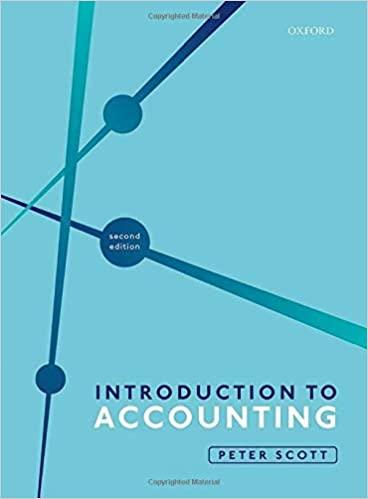Question
Transaction 1: John Smith deposited $30,000 cash into the new business' bank Transaction 2: Borrowed $10,000 from the bank. Transaction 3: Bought $8,000 worth of
Transaction 1: John Smith deposited $30,000 cash into the new business' bank
Transaction 2: Borrowed $10,000 from the bank.
Transaction 3: Bought $8,000 worth of furniture with cash.
Transaction 4: A customer paid $2,000 cash for bookkeeping services to be provided next month.
Transaction 5: Provided services to customers and received $15,000 cash.
Transaction 6: Provided bookkeeping services for $4,000 on account.
Transaction 7: Paid $6,000 cash for a one-year insurance policy which started on the first of the month.
Transactions 8 to 10: Paid cash for rent, salaries and interest for the month.
Transaction 11 to 12. Received a telephone bill and travel bill which will be paid later.
Transaction 13: Paid $3,000 toward the bank loan.
Transaction 14: John Smith withdrew $2,000 cash for personal use.
Transaction 15: A customer paid $500 cash for the amount owing for bookkeeping services provided earlier in the month.
Transaction 16: Paid the telephone bill $300, received earlier in the month.
Step by Step Solution
There are 3 Steps involved in it
Step: 1

Get Instant Access to Expert-Tailored Solutions
See step-by-step solutions with expert insights and AI powered tools for academic success
Step: 2

Step: 3

Ace Your Homework with AI
Get the answers you need in no time with our AI-driven, step-by-step assistance
Get Started


